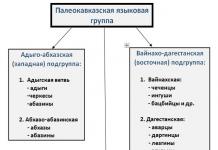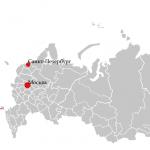The essence of the nasty joke is that our world is a complete show business, and we live in it (Musin Almat Zhumabekovich)
Paving slabs give a well-groomed and presentable look to a path or walkway near a home or office, which is why very often people prefer paving slabs for exterior decoration of external areas. Among building materials, the demand for it not only does not fall, but also increases. Therefore, competition among manufacturers is quite high. However, this does not mean that production should not be opened.
This business is very popular and profitable, so be smart about drawing up a business plan for the production of paving slabs and open your own business.
Business payback
Many qualified experts note that the production of paving slabs is a profitable business, since the payback is more than one hundred percent. Even defective products can be used, for example, in construction.
Business registration
The process of registering a business is quite simple, without certification. All you need to do is register as an individual entrepreneur. If you want to produce a certified product and have confirmation of its quality, then you can obtain a certificate from a special certification service. The service will check your product for various qualities, such as frost resistance, durability, strength. You will easily receive a certificate if your products pass these tests.
Production equipment

For the production of paving slabs use:
- vibration casting technology;
- vibration pressing technology.
To produce tiles using vibration pressing technology, you need to purchase specialized equipment:
- brick press (twenty thousand dollars);
- concrete mixer (six thousand dollars);
- punch (three thousand dollars).
Making tiles using vibration casting technology will cost much less, since you need less expensive equipment:
- vibration table (four thousand dollars);
- different types of shapes (depending on the shape from one to eighteen thousand dollars per piece);
- concrete mixer (six hundred dollars).
Production
In order to understand these processes, it is necessary to become more familiar with the production technology of paving slabs. First, let's look at vibration pressing technology. The same technology is used in the manufacture of stones for walls, partitions, and borders.
Vibrocompression technology
Preparation of concrete mixture
A concrete mixer is used to prepare the concrete mixture. In order to understand how many concrete mixers you will need, you need to know how many layers your product will have. So, if the product has two layers, then you need two concrete mixers. Then the finished mixture for the mold is transferred to the matrix of the brick making machine.
Formation of forms
After moving the forming mass into the matrix, the punch with vibrators begins its work. The result of this work is vibration pulses, from which the mixture begins to thicken. This whole process lasts five seconds. After this, the formed product proceeds to drying. Drying is carried out in one pallet, and for a new batch of goods you will need another pallet.
Drying tiles
In order for the tiles to have a finished appearance, it is necessary to use heat and moisture drying. For this purpose, steam can be successfully used. If the means do not allow you to use the heat-moist method for drying the tiles, then it is quite possible to dry almost finished products in the room itself. To guide you on the time required for drying, let’s give an example: for concrete with a density of up to two MPa, it takes from five to eight hours.
Vibration casting technology
- production of concrete mixture;
- laying concrete on a vibrating table in special forms;
- laying out finished forms on a pallet;
- keeping the resulting finished mixture under natural conditions for two days;
- heating the hardened form for up to two minutes to a temperature of seventy degrees, knocking out the finished product.

Selecting a room
There are no special requirements or restrictions on the location of production premises. An essential requirement for choosing a production facility is the square footage of the premises, since it is necessary to place all the equipment.
It is desirable that the room be more than seventy square meters in size. The voltage in the network should be three hundred and sixty volts. And it will be necessary to equip a special room to house the drying chamber, and set the temperature there to forty-five degrees.
Production area
In order to accommodate all the necessary specialized equipment and allocate space for storing the necessary materials and products, you will need a room of one hundred square meters. In this case, the warehouse can be taken out separately, but its construction will also require one hundred square meters.
In this case, you can do without heating the workshop, since the heat will come from the production process itself. The finished material is first left in the workshop, and only then transferred to the warehouse.
Recruitment
In order to produce 50 meters of square paving slabs per day, you will only need to hire three people.
Each person's responsibilities will include:
- concrete preparation process,
- press feed,
- sending the product to dry.
After making paving slabs, the question of its implementation becomes a question. Naturally, you want to have a wide base of regular customers, so you need to provide them with a wide range of paving slabs you produce. And for this, even during the development of a business plan, it is necessary to provide for the production of tiles of different sizes and colors, with a variety of shapes.
When starting a business, it is recommended to focus on individuals or small entrepreneurs who purchase paving slabs for their needs. Large orders should be taken later, when you have consolidated your position in the first segment.

Production costs
Consumption of initial investments in the paving slab production business:
- work on launching and setting up production - 100,000 rubles;
- melting and heating unit - 550,000 rubles;
- press (for example, D2430) - 468,000 rubles;
- concrete mixer (for example, SBR-500) - 70,000 rubles;
- press (for example, PP TR) - 210,000 rubles;
- scales (for example, MK-15.2) - 4,100 rubles.
Total: 1,403,000.00 rubles
Wages
For production, it will be enough to hire three people and assign them to the following positions with the following salary:
- manager (24 thousand rubles),
- operator of a melting and heating unit (24 thousand rubles)
- worker (22 thousand rubles)
Based on this salary level, payroll costs will be 70,000 rubles (if employees work one shift) and, accordingly, 140,000 rubles (if employees work two shifts).
When calculating the cost of one square meter of finished products, the cost of payroll will be 33.34 rubles.
It is also necessary to include in the cost of one square meter of finished products the amount of the single social tax, which is 26%. Thus, it gives 8.7 rubles.
You can calculate the cost of rent: if one square meter costs one hundred rubles, then renting the entire premises will cost 10,000 rubles. In this case, the rent to calculate the cost of one square meter of finished products will be 2.40 rubles.
Costs of necessary materials and energy
To make the product you will need the following material:
- polymer;
- construction sand;
- coloring pigment.
Composition of a mixture of polymer and sand:
- polymer - 24.60%;
- sand-75%;
- pigments - 0.40%.
We take into account the average price of materials:
- sand – 0.33 rubles per kilogram;
- pigment – 50 rubles per kilogram;
- polymer – 13.60 rubles per kilogram.
Thus, one ton of the above material will cost 3,795 rubles.
At the same time, to calculate the cost of one square meter of finished products, the cost of raw materials will be 136.60 rubles.
The equipment uses electricity per shift:
- press - 22 kW; melting and heating unit - 100 kW;
- light bulbs - 12 kW;
- concrete mixer - 1.5 kW.
Total: 135.5 kW is used per shift.
Taking into account the fee of 4.03 rubles per 1 kWh, the cost of electricity per square meter of finished product will be 7.8 rubles.
Calculation of the cost of one meter of square paving slabs:
Final calculations:
Conclusion
This type of business is one of the fastest paying businesses. Anyone can organize this business, since there are no particular difficulties in producing paving slabs. An undeniable advantage is the quick return on investment of the business. The disadvantages include the seasonality of the work and the monotony of the process itself.
- Sales technology
A sample business plan for the production of paving slabs on a mini-enterprise scale. Paving slabs are a popular material that is widely used in paving streets and territories. Paving slabs have a number of advantages over asphalt pavement
Paving slabs are a popular material that is widely used in paving streets and areas. Paving slabs have a number of advantages over asphalt pavement:
- Longer service life (up to 30 years);
- Environmentally friendly, since only safe components are used in the production of tiles;
- Strength, the material is not damaged by changes in temperature and humidity, and can also withstand heavy loads;
-
Colorful appearance and unique design.
Today there is a large selection of equipment for the production of paving slabs, from manual to automatic lines. The production itself can be organized in almost any room with an area of 80 m2. Two workers can easily handle the production of 1000 m2 of paving slabs per month.
Do I need permission to open a production facility?
To organize the production of paving slabs, it is enough to register individual entrepreneurship. As tax systems the best option is the simplified taxation system (STS), 6% of revenue or 15% of profit.
Let us calculate the main indicators of the economic efficiency of the production of paving slabs using the vibration casting method.
Introductory information:
- Production area: 90m2;
- Type of property: rent (25 thousand rubles/month);
- Number of shifts: 1 shift;
- Productivity per shift: 50 m2 of tiles or 1100 m2 per month;
-
Number of working days in a month: 22 days.
How much money do you need for a business producing paving slabs?
Capital costs for starting a paving slab production business will be 358,500 rubles.
Download business plan for the production of paving slabs
Material costs for the production of 1 m2 of paving slabs are 169.36 rubles.
The cost of paying wages will be 32,000 rubles per month.
The cost of production of 1 m2 of paving slabs is 252.8 rubles. Total monthly expenses are 278,036 rubles.
How much can you earn in the production of paving slabs?
Conclusion: The net profit of the paving slab production enterprise will be 137.6 thousand rubles per month. The profitability of production at such indicators is 49.5%, and the payback period for capital investments is only 2.6 months. It is worth considering that such indicators are possible subject to 100% sales of all manufactured products, which is 1100 m2 of paving slabs per month.
We recommend download business plan for the production of paving slabs from our partners, with a quality guarantee. This is a full-fledged, ready-made project that you will not find in the public domain. Contents of the business plan: 1. Confidentiality 2. Summary 3. Stages of project implementation 4. Characteristics of the object 5. Marketing plan 6. Technical and economic data of the equipment 7. Financial plan 8. Risk assessment 9. Financial and economic justification of investments 10. Conclusions
Step-by-step opening plan, where to start
A significant advantage in organizing a business for the production of paving slabs is the absence of the need to obtain special licenses and mandatory certification.

In this regard, it is necessary to draw up a business plan taking into account the following factors:
- Registration of an individual entrepreneur or LLC, depending on the volume of sales and production.
- Selection of premises for production.
- Purchase and installation of necessary equipment.
- Recruitment and training of personnel.
- Setting up sales of products to the sales market, establishing supply agreements with sales representatives.
What equipment is needed to produce paving stones?
Establishing mass production of paving slabs is possible only if you have high-quality equipment. You will need to purchase:
- Forming and unmolding vibrating tables.
- Plastic molds for creating the required tile sizes.
- Special mineral additives to the concrete composition, strengthening its structure and giving the desired parameters.
- Various dyes.
Don’t forget to organize the purchase of raw materials for production - cement, sand and crushed stone.
Which OKVED code to indicate when registering a business?
When submitting documents for registration of individual entrepreneurs, it is necessary to indicate the OKVED code 2. 23.6: production of products from concrete, cement and gypsum.
What documents are needed to open
Registration of a business will require registration of an individual entrepreneur or LLC. In the first case, the businessman must submit a notarized application for business registration indicating the OKVED code, a photocopy of the passport and ID code, as well as a receipt for payment of the state fee. If you want to additionally receive a quality certificate, then you need to contact the appropriate organization, which will conduct an analysis for compliance with GOST, identifying indicators of humidity, frost resistance, mechanical strength, etc.
Which tax system to choose
In most cases, entrepreneurs register a business by choosing a single tax on imputed income. A simplified taxation system would also be suitable.
Sales technology
You can sell tiles immediately after setting up production, based on samples. The company should have samples of tiles prepared so that the buyer can navigate the assortment in advance. You should not focus on one type, but rather produce paving slabs of different sizes and different types.

In addition to sales, it is advisable to provide additional services: transportation, installation and project design development. This will increase business profitability by 20-30%. You can expand your customer base through advertising: placing city banners, as well as creating and posting information on a website on the Internet.
It’s not easy to make tiles, and it’s even harder to sell them. The market is overflowing with all kinds of offers. A lot of tile manufacturers have appeared in recent years. When opening a business, you must solve the problem: to whom and how to sell tiles. This is very important because after hiring labor and purchasing equipment, you will have more serious problems. And it’s even worse if at this time you have no distribution channels for your products.
“The production of paving slabs is a business with a low barrier to entry. I bought a concrete mixer, a couple of molds, some raw materials, hired workers - that’s the whole business. Such mini-productions are opened even in garage conditions,” says Alexandra Leonidova, deputy. Development Director of CJSC Irkutskzolotoproduct.
“The competition in our business is so great that, despite the rise in cement prices by 30%, we are forced not to increase prices for tiles,” says Mikhail, one of the tile manufacturers.
In addition, most products are far from ideal in quality. Saving at the start, manufacturers purchase cheap equipment and use simple production technology using vibration casting. As a result, their products are much inferior in quality to those produced by companies with expensive and technologically advanced equipment.
Therefore, the only correct way today is to produce high-quality tiles at an affordable price (not higher than the market average). This is the only way to ensure that your products will be in demand.
It is also worth considering the fact that the production of paving slabs is a seasonal activity. It is produced when the construction market revives, that is, in the spring. At other times of the year, it will not be possible to sell tiles, especially if production is opened in the northern regions. For this reason, for many enterprises this is more of an additional profile of activity rather than the main direction.
How much can you earn?
Income from the production of paving slabs, even with the same selling price from two different manufacturers, can differ dramatically. And the reason for this is cost. The costs of producing paving slabs greatly depend on technology and raw materials. For example, the vibration casting method, which traditionally requires more manual labor, will increase labor costs, hence the cost of the finished product will also increase.
A lot depends on the type of raw materials used. To produce a high-quality product that will have increased frost resistance, it is necessary to use washed sand. But such raw materials are several times more expensive than ordinary sand. This again increases the cost of production. It is not advisable to save on components: due to low-quality raw materials, your tiles will crumble in 2-3 years, which will damage the company’s reputation. There is only one thing left - to optimize production processes and survive due to the volume of products produced.

The average cost of paving slabs produced by vibration pressing is 270 rubles/sq.m. The sales price is about 350 rubles/sq.m. Profit per square meter is only 80 rubles. It turns out that in order to earn 80 thousand rubles a month, you need to sell 1000 sq.m. finished products. This is from 15 to 20 buyers per month.
Equipment and technology
The cost of purchasing equipment depends entirely on the technology used. Today, two main technologies for the production of paving slabs are known: the vibration casting method and the vibration pressing method.
The first option is more often used by beginning entrepreneurs who do not have large investments. To start a business using vibration casting technology, you will need to purchase a minimum set of equipment: a concrete mixer, a vibrating table, a set of molds, as well as available tools: mittens, shovels, buckets. The cost of the entire set, including the purchase of raw materials, will amount to no more than 150 thousand rubles.
To produce one square meter of tile, 40 to 50 molds are required. The mixture poured into molds is kept for about 2 days. Thus, for continuous production, a minimum of two sets of molds will be required. This technology allows you to organize a business virtually at home, and involve family members and relatives in the labor process.
Experienced market players point out several disadvantages of this technology:
1. Very low performance. One square meter will take two days to dry, but what if you receive an urgent order for 100 square meters? To perform such work, you will have to purchase an incredible number of forms (several thousand), as well as have a large staff of workers. Many people note considerable losses of cement with this method. Hence the high cost of production.
2. Low quality of the resulting products. The tiles produced using this technology have low frost resistance, and their service life is no more than 4 years.
“The production of paving slabs using the vibration casting method cannot be called a serious business,” entrepreneurs say.
Video of the production process of paving slabs using the vibration casting method:
Another technology - the vibrocompression method - is designed to eradicate all the shortcomings of the above method. The essence of this technology is that the tiles are produced by vibrating the mixture with a small amount of water. The equipment used is special installations (mini-factories) - brick presses. Concrete produced by vibrocompression has a low cement to water ratio. This means that this reduces the consumption and loss of cement, increases the strength and frost resistance of finished products. The main advantage is the productivity of the line. With the help of even a small Russian-made brick press you can get from 20 to 30 sq.m. tiles per hour. Accordingly, in an eight-hour work shift, 160 – 240 sq.m. can be produced. tiles At the same time, only 3-4 people are enough to service the installation. With such capabilities, you don’t have to worry about even the most urgent orders.
The method has only one drawback - investment in starting a business. Purchasing a new installation - line will cost from 850 thousand rubles, depending on the productivity of the line and the types of products produced. For example, the Rifey Udar brickmaking press (Zavod Stroytekhnika LLC) will cost about 1.7 million rubles:

Expensive, but the machine is universal and can produce not only paving slabs, but also lawn grates, curb, pillar, wall and facing stones. Thus, it is possible to expand the list of products and significantly increase the capabilities of the enterprise.
Production of paving slabs using Condor installations
Who is the client and how to sell tiles
Buyers for paving slabs are different. It is bought by both owners of small summer cottages and pensioners, who take 2-3 sq. m. Shop owners buy from 20 to 40 sq. m. m., and the owners of the cottages - 60-70 square meters.
Selling products is a whole science, and each manufacturer has its own methods in this regard. You can offer goods to wholesale resellers, but they ask for the goods at a discount. You can also supply tiles to retailers, construction markets and retail chains specializing in the sale of building materials.
For smaller, artisanal producers, the classic way of selling products may be suitable. You can stand by the road, lay out several product options and hang a “Paving Slabs” sign. If the road has a large flow of cars and there are large cottage communities nearby, then an influx of buyers is guaranteed.
A more expensive, but most effective project is to create your own online store selling paving slabs and other building materials. Internet trade is gaining momentum today, which can be a promising channel for selling products. The creation and promotion of an online store will cost up to 150 thousand rubles. The service will also require hiring a certain number of sales managers and a web resource administrator.
Business development options
Some entrepreneurs combine production and laying of paving slabs to increase profitability. The price of one square meter of tile is on average 350 rubles, and its installation costs the customer 400 rubles per square meter. It turns out that having your own team of stackers, you can earn another 40 - 60% of the profit. But this is more often done by small manufacturers; large players are not interested in this process.
The paving slabs are beautiful. With it, any area turns into a garden. Every owner of a country house tries to lay out walkways and driveways from such tiles.
But making paving slabs with your own hands turns out to be more expensive and much longer than just buying ready-made ones. Let's find out why next.
A small plot requires about 80 sq.m. tiles For parking one car 25 sq.m., recreation area 10 sq.m. and paths 600 cm wide and 70 meters long.
As of 2015, the average price of colored tiles in Perm is from 700 rubles per square meter. Thus, the purchase of paving slabs from the manufacturer will be 49,000 rubles plus transportation costs of 4,000 rubles.
Making paving slabs with your own hands is only beneficial for the unemployed
If you watch various videos on YouTube, making tiles yourself is easier than nailing a nail. Is this true? I decided to realize my old dream and make tiles myself.

Capital investments:
- A large concrete mixer cost 8,500 rubles a year ago. (now more expensive);
- Molds for paving slabs of the “Brick” type, 50 pieces (1 sq.m.) x 50 rub./piece. = 2500 rub.
- A bag of red pigment (25 kg, Czech Republic) - 1800 rubles;
- Plasticizer bag (30 kg) - 750 rub.;
- 10 tons of sand - 6,000 rubles;
- 10 tons of fine gravel - 10,000 rubles;
- Electric motor for vibrating table* (used) - 1000 rub. ;
- Cement.
The total initial investment amounted to 28,550 rubles.
* - A vibrating table consists of 2 old tires, a flat base (pallet), an electric motor with an eccentric.

Your work is not free
Now, how do we calculate the cost of our labor? It's not free as you might think.
If you make tiles during working hours, then 1 hour = 1 hour at work. Let's say that I have 1000 rubles per hour.
If you do tiles after work or on a day off, then 1 hour is estimated at 200 rubles.
The production time of one batch of paving slabs takes from 3 to 5 hours
This is only on YouTube for 1 form it takes 10 minutes. In fact, to fill 1 sq.m. paving slabs with your own hands, you need to make 3 batches of mortar, fill 50 molds, compact them on a vibrating table, move them to the drying place, clean the tool.
You need to wait 3-4 days to get the molds without chips around the edges. Manufacturers of molds allow you to take them out within a day. I took it out - the corners fell off in places.

After removing the finished tiles, you need to clean the molds from any remaining mortar. From 30 minutes to an hour.
Let's sum up the total costs per 1 sq.m. hand-made paving slabs 6 cm thick (minimum):
- 3 batches of mortar (sand 30 kg, gravel 60 kg, cement 30 kg, pigment and plasticizer) = 20 rubles. + 60 rub. + 150 rub. + 20 rub. = 250 rub.
- 4 hours of work on a day off x 200 rubles. = 800 rub.
The total is 1050 rubles per square meter! And also wait 3-4 days for the cement to gain strength and about 4 weeks before it can be laid.
Our area will require 80 sq.m. x 1050 rub. = 84,000 rubles. + cost of molds and concrete mixer in the amount of 11,000 rubles.
Many months of work!
To produce the required 80 sq.m. paving slabs will take eight (!) months. Only a complete idiot would make the tiles himself.
Conclusion
It is easier and cheaper to buy paving slabs than to make them yourself. With the exception of two cases: you don’t work anywhere and you have plenty of time, or you simply have nothing to do at the dacha. It’s better to fill everything with tinted concrete yourself.
I made 2 square meters myself. meters. Tired of waiting and washing forms. I put everything away and forgot about this nonsense.
When improving any area, you cannot do without a convenient and beautiful road surface. Production of paving slabs as a business: profitability, plan with calculations of income and costs in a review for beginning entrepreneurs.
Pros and cons of paving slab business
Paving slabs are a popular building material for arranging paths and platforms in a wide variety of places:
- city parks, squares, roads, squares;
- area in front of shops and other business establishments;
- courtyards in private and apartment buildings.
Competition in this sector of the economy is very high, but huge volumes of consumption allow all producers of high-quality paving stones to make a profit.
Entrepreneurs are attracted by the following points:
- Lack of permits to open a business.
- Simplicity of legal registration.
- Need for a small number of employees.
- Simple technological process.
- Opportunity to earn additional income from providing tile laying services.
- High level of profitability.
The negative aspects include:
- Seasonality - most of the production occurs in the warm season, since a small amount of construction work is carried out in winter.
- Same type and monotonous work - due to this, staff turnover is possible.
- Expensive equipment - paving stones are produced on a large scale using machines costing up to half a million rubles.
You can download a business plan for the production of paving slabs with calculations at.
Tile production business plan
In order not to miss anything when starting a project for the production of paving slabs, you must adhere to the following action plan:
- Marketing market research.
- Study of tile production technology.
- Registration of an enterprise.
- Renting premises.
- Purchase of equipment and materials.
- Search for workers.
- Organization of advertising and sales.
- Profitability calculation.
To save time, you can do several things at the same time, for example, purchasing equipment and hiring workers.
The owner of a paving slab production may need a business plan in case of borrowing funds - a bank loan or a non-commercial loan.
Marketing
There are many varieties of tiles on the market, which differ in characteristics and production methods. Starting from scratch to produce several types at once is expensive and risky. It is better to determine the most in-demand product and only after the enterprise begins to generate stable profits, expand production.
You can identify a sales leader either on your own or by ordering research from a marketing company. Also at this stage, it is necessary to determine the lower and upper limits of the price of tiles in order to be able to compete without damaging your own business.
Another option is possible: if, when analyzing the market, a niche turns out to be free, then if there is demand, you can take a strong position in the production of unique products.
Technology
There are three main types of coating:
- Ordinary concrete slabs used to pave sidewalks and paths. Color and shape can be very diverse, even with 3D design.
- Polymer plastic tiles. With the help of additives, it is given the necessary properties - frost resistance, reinforcement, water resistance. Polymer tiles have a longer service life, are easier to process and more pleasant to use than concrete tiles.
- Soft paving slabs. The basis for production is shredded car tires. This coating is used in the construction of sports fields, outdoor swimming pools and other places where there is a danger of injury. The tile can withstand a wide range of temperatures, is highly resistant to adverse environments, and has a non-slip rubber surface.
Two approaches are used in production:
- Vibration casting is a simple and cheap method of producing tiles that are not very durable and of high quality. First, a concrete mixture of cement, crushed stone, sand and additives is prepared in a concrete mixer. Then the mixture is poured into molds on a vibrating table, which operates until the surface of the tile is moistened. The molds are dried on pallets indoors for two days, then heated for several minutes to 60ºC-70ºC to remove the tiles on a vibrating table. During the process of heating and beating out the matrix, cracks and chips may form on the paving stones, especially if unskilled labor and cheap equipment are used.
- Vibropressing and hyperpressing - this method uses expensive equipment, but the tiles are of high quality. As with vibratory casting, a molding mixture is prepared, which is compacted with a vibropress or hydraulic press. Such tiles dry for 8-9 hours naturally or 5-6 hours with hot steam. Since manual labor is kept to a minimum, there are practically no defective products.
To produce high-quality tiles, you need to consider the following nuances:
- When first used, polymer forms are treated with a special agent that removes static charge. In the future, it is advisable to use emulsol lubricant and, after finishing making the tiles, rinse with a 7% hydrochloric acid solution.
- To retain moisture in the tile when drying, it is covered with film. But then the drying time increases.
The finished paving stones are carefully placed on wooden pallets and secured with film and tape. The tiles should be stored in a dry, warm and well-ventilated warehouse.
Legal registration
The owner of an enterprise can register as an individual entrepreneur or open a limited liability company. Next, you need to register for tax purposes with the Federal Tax Service and social funds. A simplified taxation system makes it possible to submit reports once a year with payment of tax as a percentage of revenue and fixed social contributions.
No special permits are required to conduct activities. If it is necessary to issue the customer a quality certificate for the tiles, you must provide a sample of the product to the certification service.
Room
The production of paving slabs as a business cannot be carried out at home - for the location of equipment and storage of finished products on an industrial scale, a room of at least 70 square meters is required. m. In the industrial zone of any city there is a free workshop or a suitable warehouse at an affordable price.
Basic requirements for a mini-plant:
- Availability of communications - water supply, sewerage, electricity.
- An insulated room and the presence of heating if you plan not to stop production during the cold season.
- A change house for workers or the possibility of independently arranging a living area.
- Separate sites for production and warehouse.
- High ceilings.
- Access road adapted for freight transport.
It is advisable to find premises near wholesale centers that sell raw materials for production in order to save on delivery.
Equipment and raw materials
The list of necessary equipment for any production technology includes:
- concrete mixer (to make two-layer tiles you need 2 pieces);
- matrices of various standard forms in the amount of 150-200 pieces (there are metal, plastic, wood, silicone);
- container for washing molds;
- heated container for removing tiles from the matrix;
- racks for drying tiles;
- pallets for storing finished products;
- packaging tools and accessories;
- scales;
- hydraulic trolley for moving pallets with tiles.
Depending on the method of making paving stones, you will need:
- Vibrating table
- Hydropress.
New equipment is quite expensive (from 100,000 to 500,000 rubles), while used equipment is 30-40 percent cheaper. You can make a vibrating table and iron forms yourself if you have experience in mechanical engineering and the ability to work with metal. But at the same time, production technology and the quality of the finished product are called into question.

If you have free starting capital, you can purchase a ready-made tile production line for RUB 800,000. - 1,000,000 rub.
Raw materials for concrete paving stones are cheap and available. Recipe for making 1 sq. m. paving slabs 6 cm high:
This is the most common composition among manufacturers. You can also use crumb rubber, glue, wire mesh, polymers, and clay in production.
An important point: in order to obtain consistently high-quality products, the components for preparing the mixture must be of the same brand and manufacturer.
Employees
The number of workers required at a paving stone plant depends on the planned output volumes. For example, for production by vibration compaction method 50 sq. m of paving surface will require 3 people per shift:
- worker at the machine;
- handyman;
- loader.
Administrative work, product sales and accounting activities at the enterprise can initially be carried out by the owner. Once the plant becomes profitable, it makes sense to hire specialists.
Particular attention should be paid to safety precautions, and workers should be provided with special clothing and protective equipment.
Sales of products
For a novice entrepreneur, the main buyers of paving slabs are the owners of private houses and retail outlets. To receive an order from a construction company, it will be necessary to certify the products.
The first clients may be friends or relatives who need to improve their territory. You need to look for orders through advertisements in local newspapers, construction press, and information portals on the Internet. A good result comes from participation in specialized fairs and exhibitions and contacts with supply agents of construction companies.
Sometimes customers receive orders for tiles with installation. To provide turnkey services, you can enter into an agreement with an installation organization or hire workers for each case.
To attract large customers, you need to make discounts, for example, when purchasing a certain quantity of products, offer free delivery and provide a warranty on operation.
Video: how to open a paving slab production business?
Economic calculations
To determine the amount of investment in a tiling project, you need to make a cost-income calculation and calculate whether it is profitable to engage in this business.
Starting production using the vibrocompression method includes the following costs:
Half of the investment is the cost of purchasing equipment. Vibratory casting technology does not use expensive equipment and you can start a business with 700,000 rubles. — 750,000 rub.
Fixed costs per month for the production of paving stones consist of:
Cost of 1 sq. m of paving slabs will cost the entrepreneur 280 rubles. In the process of work, additional costs may arise for equipment repairs, product certification, incentive payments to employees, etc.
The plant's income will depend on the volume of production and sales of tiles. Presumably, with a production rate per day of 50 sq. m of paving stones and sales of 80% at 600 rubles, monthly turnover will be:
With such calculations, the investment will pay off in 4 months - this is a very high figure for production. If you also provide tile laying services, the profitability will be even higher.


















